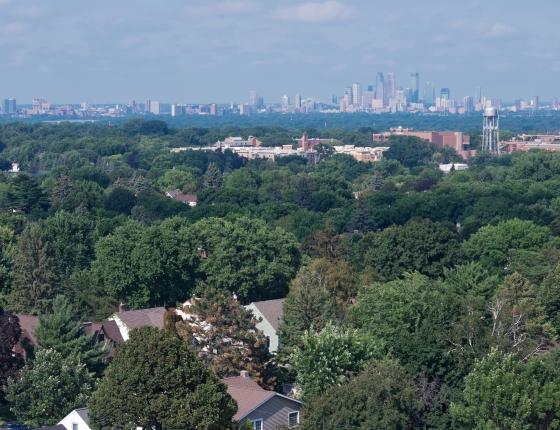6月30日, Minnesota’s energy utilities released their long-awaited triennial plans under the new guidelines in the Energy Conservation and Optimization Act (ECO). ECO is the new and improved version of the Conservation Improvement Program (CIP) and was passed during the 2021 legislative session, after six years of hard work and bipartisan collaboration.
The filing of triennial plans is a regulatory obligation for utilities operating in Minnesota and plays a crucial role in outlining strategies and objectives for energy conservation, 优化, 减少温室气体排放. Under the watchful eye of the Minnesota Department of Commerce, the ECO triennial filings embody the state's unwavering commitment to energy efficiency and sustainability.
ECO保留CIP的核心政策, protecting the framework that has allowed Minnesotans to save $8.20亿年 自1983年颁布以来. CIP下, utilities were limited in their ability to help customers achieve energy-saving goals as they were restricted to traditional energy efficiency — gas utilities could only help customers save gas and electric utilities could only help customers save electricity — but ECO ushers a new era. 随着ECO签署成为法律, utilities can now offer a harmonious blend of traditional energy efficiency practices alongside efficient fuel switching (electrification) and load 优化 (demand response). This expanded scope opens the doors to a more comprehensive approach to energy conservation.
While fuel-switching initiatives permitted under ECO offer more flexibility to utilities, 他们还必须遵守严格的标准. Fuel-switching must effectively reduce energy consumption and greenhouse gas emissions while demonstrating cost-effectiveness. 另外, these initiatives must be installed and operated in a manner that optimizes the electric utility's load factor system. By ensuring that electrification resulting from efficient fuel-switching does not contribute to peak demand, Minnesota avoids the need for additional investments in peaking resources.
在最近的立法会议期间, CEE was able to work with legislators to clarify the definition of low-income within the ECO framework. The new definition states that a household will qualify for low-income incentives from ECO if their annual income is 80% or less of the area median household income for the geographic location, or if it meets the income eligibility standards as determined by the Commissioner. This clarification holds significant importance as it effectively raises the income eligibility threshold, allowing more to access energy efficiency programs that will assist them in saving money and reducing emissions.
另外, ECO requires gas and electric utilities to spend 1% and 0.6% of their gross operating income from residential customers on low-income programs, respectively. This mandated increase in spending on low-income programs provides utilities with new ways to utilize their funds. Utilities can now direct their dollars to pre-weatherization programs, which encompass the necessary home improvements that must be completed before a residence becomes eligible for federal weatherization funding. Pre-weatherization programs primarily focus on enhancing health and safety measures, with projects such as roof repairs and the removal of mold or asbestos. This expanded range of utility spending for low-income residents facilitates a way for energy savings and efficiency programs to be inclusive of all, 不管经济状况如何.
Here is the list of Investor Owned Utilities (IOUs) and links to each of their triennial filings. 在每个计划中, 你会发现他们的程序描述, 遵从性统计, 参与和节能目标, 估计预算, 成本效益分数.
- CenterPoint Energy Minnesota Gas Triennial Plan
- Great Plains Natural Gas Company Triennial Plan
- 大明尼苏达州天然气三年计划
- 明尼苏达电力三年计划
- Minnesota Energy Resource Corporation Triennial Plan
- 水獭尾电力公司三年计划
- excel能源三年计划
Minnesota's ECO triennial utility filings undergo a rigorous review process to ensure that the proposed programs are cost-effective, 技术上可行, and capable of delivering meaningful energy savings to all customers. The Minnesota Department of Commerce encourages public participation in this process in the form of stakeholder engagement, 公开评论, input, 和建议. We expect stakeholder comments to be due mid-August and will be carefully reviewed by the Department of Commerce and utilities, allowing for potential revisions or further commentary. The ECO triennial plans are slated to take effect on January 1, 2024. 点击 在这里 找到提交公众意见的指南.
Minnesota’s energy landscape is set for a significant transformation under ECO, 作为利益相关者, we have the opportunity to contribute to this journey by actively engaging in the review process. Together, let's shape an energy efficient and sustainable future for Minnesota.
